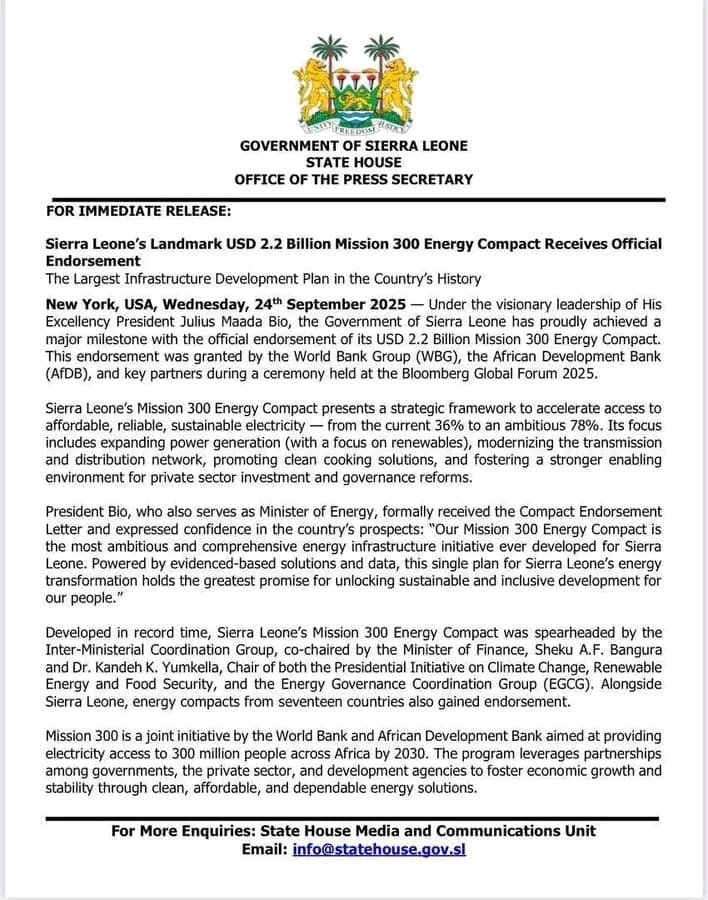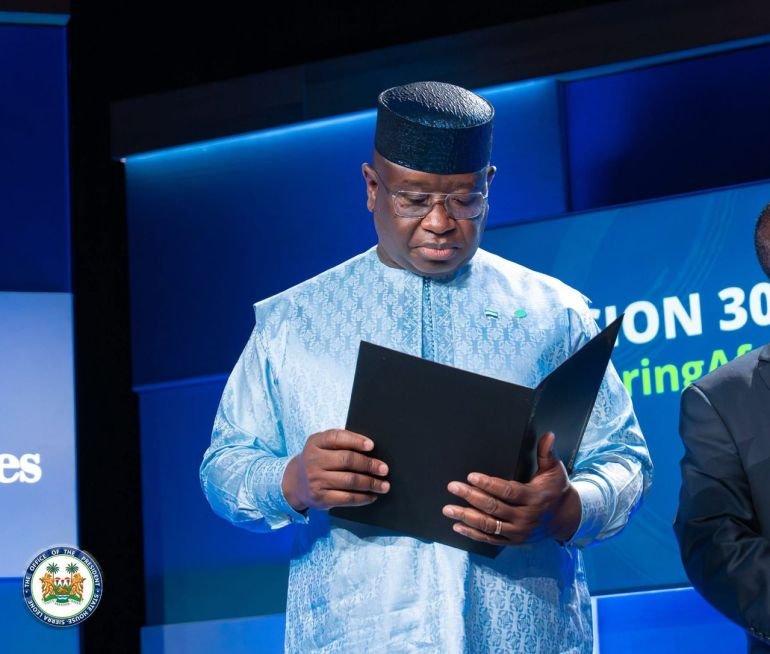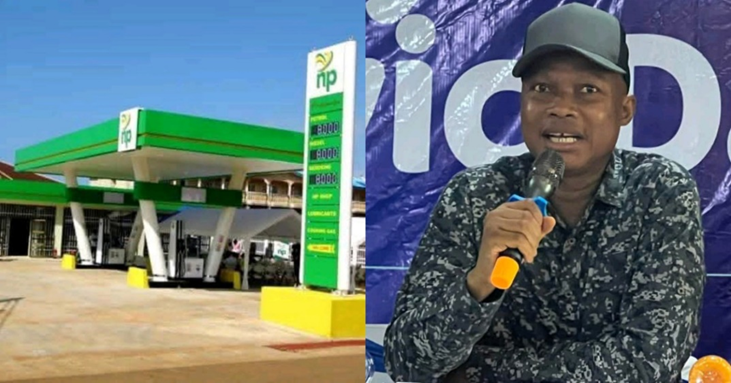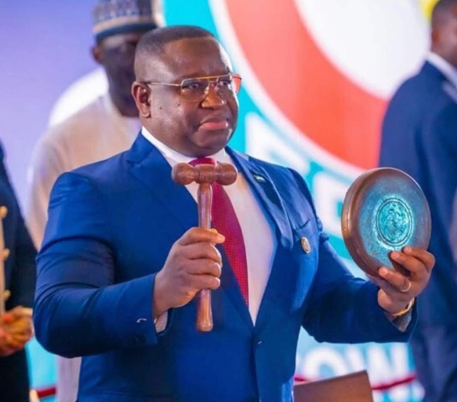By Mackie M. Jalloh
Sierra Leone has reached a historic milestone with the official endorsement of its USD 2.2 billion Mission 300 Energy Compact, the country’s most ambitious energy infrastructure plan to date. The endorsement was formally announced on Wednesday, September 24, 2025, during the Bloomberg Global Forum in New York, where global leaders and development partners convened to explore strategies for sustainable growth.
The initiative, championed by His Excellency President Julius Maada Bio, represents the single largest infrastructure development plan in Sierra Leone’s history. Mission 300 seeks to dramatically expand electricity access across the nation, increasing coverage from the current 36 percent to 78 percent over the coming years.
The endorsement was granted by two of the world’s foremost development partners, the World Bank Group (WBG) and the African Development Bank (AfDB), alongside other stakeholders who view Sierra Leone’s plan as a bold and transformative model for energy sector reform in Africa.
Speaking after receiving the official Compact Endorsement Letter, President Bio—who also serves as Sierra Leone’s Minister of Energy—described the initiative as a turning point in the nation’s development trajectory.

“Our Mission 300 Energy Compact is the most ambitious and comprehensive energy infrastructure initiative ever developed for Sierra Leone,” the President declared. “Powered by evidence-based solutions and data, this plan holds the greatest promise for unlocking sustainable and inclusive development for our people.”
Mission 300 outlines a comprehensive roadmap for the energy sector, including the expansion of power generation with a strong focus on renewable energy, modernization of the national transmission and distribution network, and the promotion of clean cooking solutions to reduce reliance on harmful traditional fuels. The plan also emphasizes the importance of governance reforms and the creation of a business-friendly environment to attract private sector investment.
At the heart of the Mission 300 framework is the recognition that energy is the backbone of sustainable growth. With reliable and affordable electricity, Sierra Leone hopes to unlock new opportunities for industrialization, job creation, and improved service delivery across healthcare, education, and technology.
The Inter-Ministerial Coordination Group, co-chaired by Minister of Finance Sheku A.F. Bangura and Dr. Kandeh K. Yumkella, spearheaded the compact’s design and implementation strategy. Dr. Yumkella, who also chairs the Presidential Initiative on Climate Change, Renewable Energy, and Food Security as well as the Energy Governance Coordination Group (EGCG), has been instrumental in ensuring the compact reflects both global best practices and local realities.
The endorsement of Sierra Leone’s Mission 300 is part of a wider continental initiative. Alongside Sierra Leone, seventeen other African countries also had their energy compacts endorsed at the Bloomberg Global Forum. Collectively, these compacts fall under the World Bank and AfDB’s Mission 300 program, which aims to deliver electricity access to 300 million Africans by 2030.
The program leverages public-private partnerships to close Africa’s significant energy gap while prioritizing clean, affordable, and dependable energy solutions. For Sierra Leone, the endorsement means not only access to substantial international financing but also an affirmation of the government’s strategic direction and reform efforts in the energy sector.
Experts note that Sierra Leone’s compact stands out for its ambitious scale and its alignment with broader climate change and renewable energy objectives. By focusing on sustainable solutions such as solar, hydro, and clean cooking technologies, the plan seeks to ensure long-term environmental benefits while meeting the immediate needs of households and industries.
For Sierra Leoneans, the endorsement of Mission 300 signals hope for a future where consistent electricity supply becomes a reality rather than a privilege. Communities that have long been constrained by poor energy access will benefit from opportunities for small business growth, improved social services, and greater economic inclusion.
President Bio’s leadership on the compact has drawn commendations from international partners, who emphasized the importance of political will in driving energy transformation. The government now faces the task of moving swiftly from endorsement to implementation, ensuring that the $2.2 billion investment translates into tangible outcomes for citizens.
As Sierra Leone embarks on this transformative journey, Mission 300 stands as both a national and continental landmark—a testament to the power of collaboration, evidence-based planning, and visionary leadership in addressing one of Africa’s most pressing challenges.



